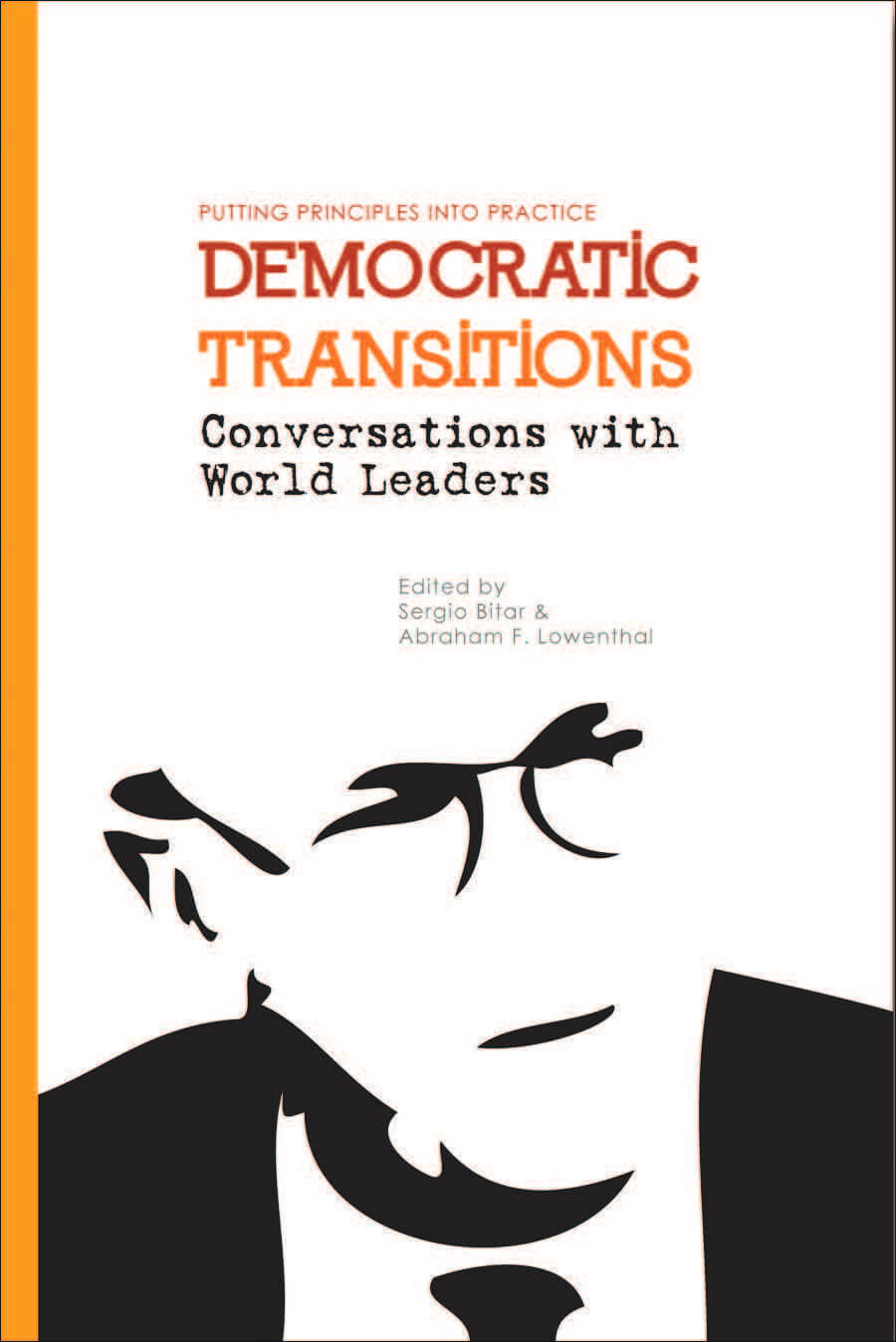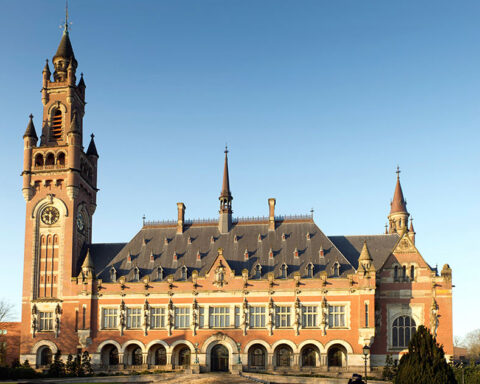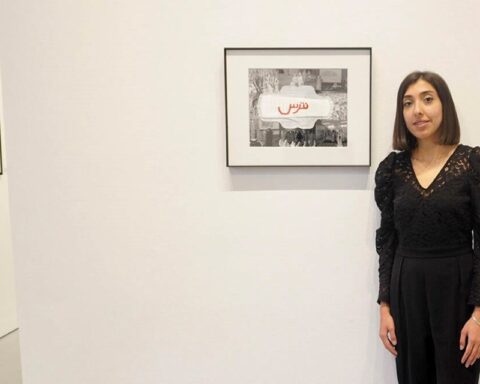 A discussion on democratic transitions highlighted the need to include the role of women when examining how world leaders have created democratic societies around the world.
A discussion on democratic transitions highlighted the need to include the role of women when examining how world leaders have created democratic societies around the world.
The discussion took place at the launch of Democratic Transitions: Conversations with World Leaders, hosted on March 31 by the International Development Research Centre (IDRC) and the Centre for International Governance Innovation (CIGI) at the University Club of Toronto.
“The beauty of the book is that from nine case studies of nine countries, it addresses issues that should be looked at for future generations that get involved in these important democratic processes and transitions that take place all over the world at various times,” said IDRC President Jean Lebel.
Between January 2012 and June 2013, co-editors Sergio Bitar and Abraham Lowenthal interviewed 13 world leaders on the processes of establishing democratic political systems during times of political upheaval and change. Former President of the Philippines, Fidel V. Ramos, former Prime Minister of Spain, Felipe González, and F.W. de Klerk, the last politician to serve as state president of South Africa during the apartheid era, were among those interviewed.
“It’s the only book on transitions that have succeeded in four continents,” explained Bitar. “[These transitions] are described not by an academician or by a journalist, but by the leaders and presidents themselves.”
Each chapter identifies the process and research that was conducted to address topics such as establishing trust, economic management and social mobilization.
Single chapter on role of women
“The fact that women are not incorporated anywhere in the world is problematic. We are still second-class citizens.”
A popular topic of discussion among audience members at the book launch was the role of women in democratic transitioning.
In the chapter “Women Activists in Democratic Transitions,” Georgina Waylen, professor of politics at the University of Manchester, examines how women supported and enhanced political participation by different social groups and promoted policies that strengthened women’s rights and gender equality.
 “Many women who actively sought to ensure positive gender outcomes during transitions were active in social movements, the bureaucracy and academia – not just in political parties or in the inner circles of men who became democratic presidents when elections were held,” writes Waylen.
“Many women who actively sought to ensure positive gender outcomes during transitions were active in social movements, the bureaucracy and academia – not just in political parties or in the inner circles of men who became democratic presidents when elections were held,” writes Waylen.
Professor Ana Isla of Brock University said she was confused as to why there was a separate researcher responsible for examining the role of women.
“Why weren’t these world leaders and representatives able to answer questions when it comes to women?” asked Isla during the question-and-answer period.
“Every aspect of society is intersected by women’s issues,” she continued. “The fact that women are not incorporated anywhere in the world is problematic. We are still second-class citizens.”
Isla said there is already a plethora of woman making an impact. She mentioned the uprising of women organizations and social movements in Latin America as recent examples.
“It’s the power of women that must change politics and change men.”
“All these women initiated the transition from dictatorship to democracy,” she said. However, they are the ones who are missing in this book because instead of looking at the women or the social movements, the focus is on the [men in power] who were able to change their minds.”
Leaders ignore role of women
The book’s introduction notes, “Unfortunately, there are no surviving women leaders of these transitions, and few of our interviewees provided much insight about women’s participation in them.”
Bitar confirmed that male leaders are very reluctant to have a conversation about women’s contributions to democratic transitions.
“Normally, the response is, ‘These women are coming again with the same story, and we have to listen,’” Bitar said, imitating the male leaders interviewed.
He went on to explain that the male leaders usually assume the women think they are not relevant to the process of improving democracy, or that if they become powerful, they will not allow men to act or decide on policies.
“It’s the power of women that must change politics and change men,” said Bitar. “It takes lots of time, but we have realized that better democracies exist when there are more women participants in policies and law-making.”
Democracy a tool, not a solution
“Democracy is only a tool … It doesn’t solve everything.”
Bitar said he and Lowenthal learned that every leader possessed the courage to take risks during times when their families, friends and colleagues were being killed or in danger.
“All of them had to combat fear – a very important element in the hands of any dictator,” he said. “Fighting against fear was something we found very prevalent.”
Researchers and influencers like Lebel and Bitar, who is also president of Chile’s Foundation for Democracy, said they know that democracy isn’t the solution to problems such as gender inequality, poverty, and environmental destruction.
“If we all took on democracy, someone naïve will say the world will be much better,” said Lebel.
“Democracy is only a tool … it doesn’t solve everything, but it gives the opportunity to have people speaking freely, institutions that are strong and take care of problems, avoid inequity, and transform social problems.”





